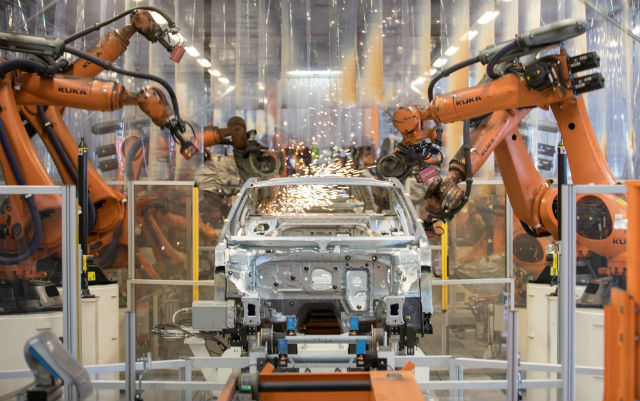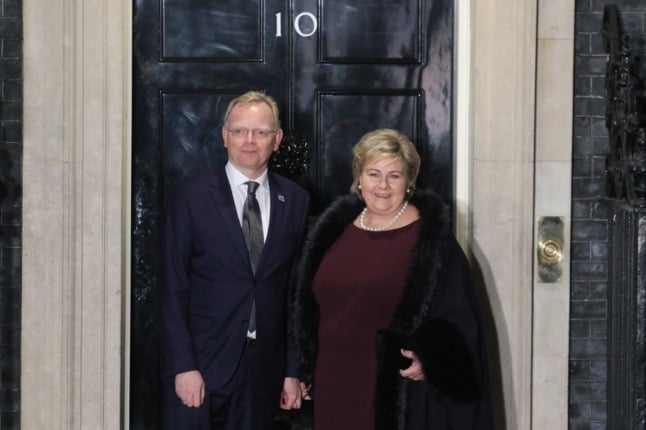CHINA
Germany to tighten rules on foreign takeovers: report
Germany plans to toughen rules on non-EU share purchases and acquisitions of its strategic companies, a report said Sunday, amid growing disquiet about takeovers by Chinese firms.
Published: 16 December 2018 13:58 CET

A Volkwagen being put together by robots made by Kuka, which was taken over by China's Midea in 2016. Photo: picture alliance / dpa
Chancellor Angela Merkel's cabinet plans to approve the law change on Wednesday and send it to parliament, the Handelsblatt business daily said, without citing its sources.
The update of the Foreign Trade Regulation would allow the German government to review or bloc foreign purchases of stakes as low as 10 percent in such companies, down from 25 percent now.
The rule would apply to “security relevant” companies that are crucial to Germany's defence or “critical infrastructure”, including many high-tech and power companies but also large food producers.
Germany and other European Union member states have voiced growing concern in recent years as Chinese companies have bought up, or purchased controlling stakes in, airports, harbours and high-tech firms.
Chinese appliance giant Midea in mid-2016 took over German industrial robotics supplier Kuka, sparking alarm in Germany about valuable knowhow being transferred abroad.
In mid-2017 Germany tightened scrutiny on non-EU takeovers of strategic companies, allowing more time for reviews and including a wider range of sectors.
In February this year, Germany raised no objections when Chinese billionaire Li Shufu bought a near 10-percent stake in the Mercedes-Benz parent company Daimler.
However in July, the German government took a minority stake in electricity transmission firm 50Hertz, citing national security reasons, thwarting Chinese investors from buying into the company.
“On national security grounds, the federal government has a major interest in protecting critical energy infrastructure,” the finance and economy ministries said in a joint statement at the time.
During a visit to Germany in July, Chinese Prime Minister Li Keqiang urged Berlin to grant Chinese companies the access that German firms enjoy in China.
“Our investments do not threaten your national security,” he said. “Through joint projects, we want to learn from your experiences and technologies.”
Url copied to clipboard!


 Please whitelist us to continue reading.
Please whitelist us to continue reading.
Member comments